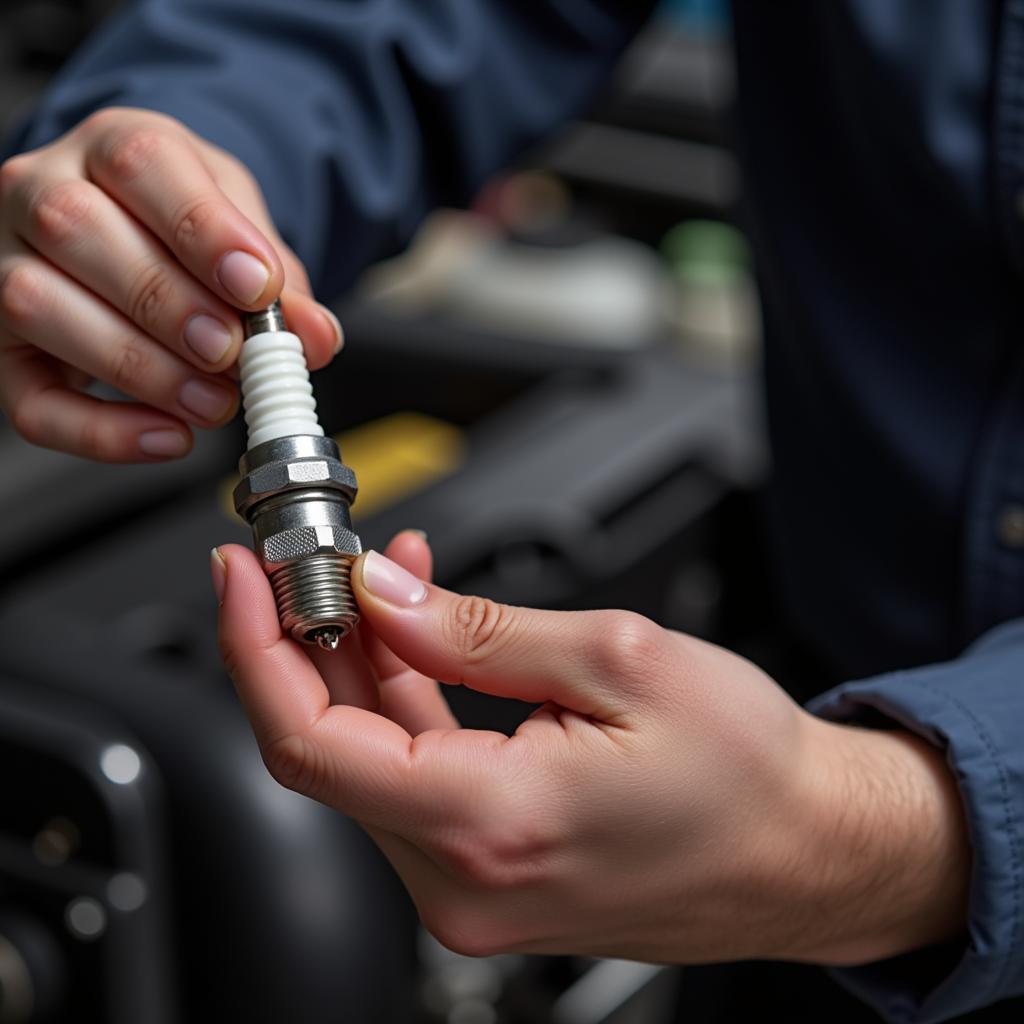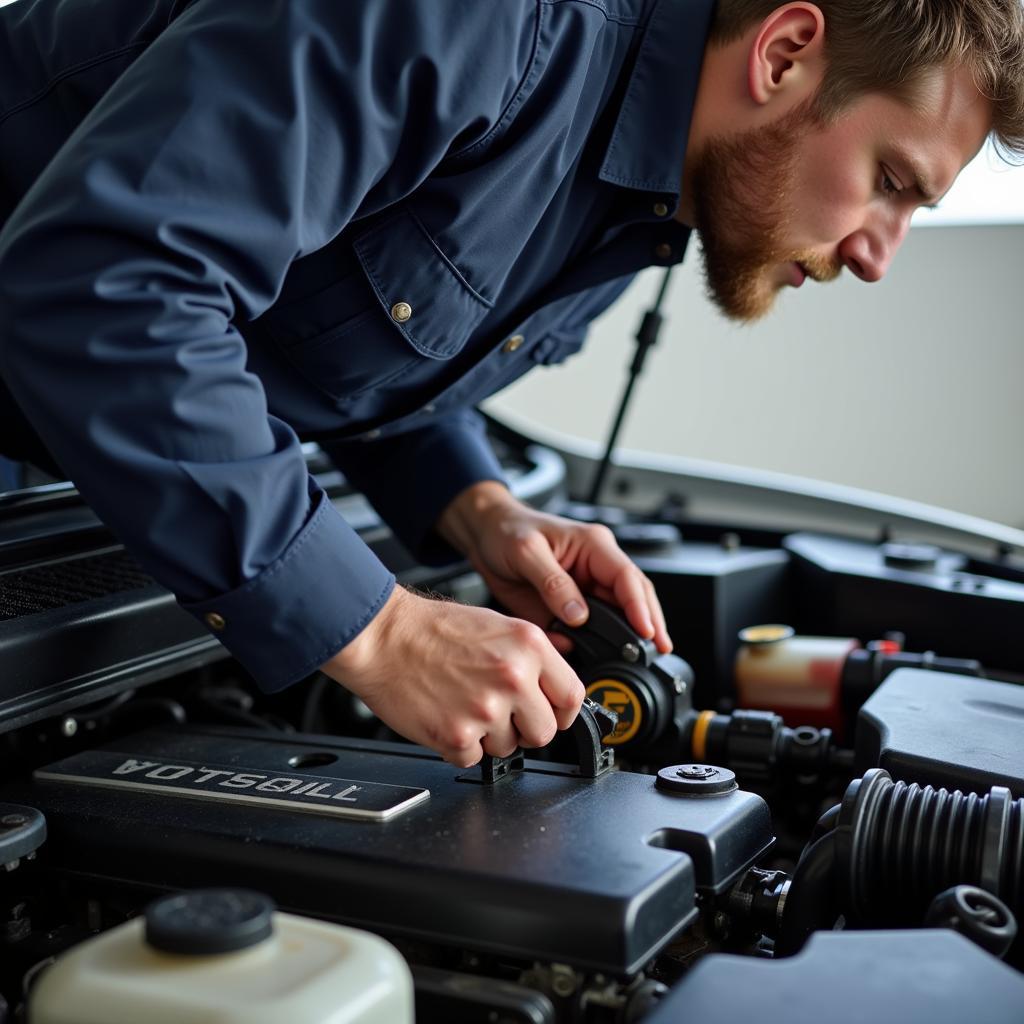Experiencing the frustration of a car engine that refuses to start? This issue, often referred to as a “Car Engine Cannot Start Problem,” can stem from a variety of reasons, from a simple dead battery to more complex mechanical failures. This guide will walk you through common causes, diagnostic steps, and potential solutions, empowering you to tackle the problem head-on.
After checking the obvious like the gear selector, sometimes the problem lies with the electrical system. Maybe it’s a case of problems with push button start cars. This guide will help you navigate these potential issues.
Common Causes of a Car Engine Cannot Start Problem
A car engine relies on a complex interplay of systems to start. A failure in any of these can lead to a no-start situation. Here are some of the most frequent culprits:
- Dead Battery: The most common reason. A dead battery can’t provide the power needed to crank the engine.
- Faulty Starter Motor: The starter motor engages the engine’s flywheel to initiate the combustion process. A malfunctioning starter can prevent the engine from turning over.
- Fuel System Issues: Problems with the fuel pump, fuel filter, or fuel injectors can disrupt the flow of fuel to the engine, preventing ignition.
- Ignition System Problems: Faulty spark plugs, ignition coils, or a malfunctioning distributor can prevent the spark needed to ignite the air-fuel mixture. You might want to check out information about car engine distributor problems.
- Sensor Malfunctions: Modern cars rely on numerous sensors to monitor engine performance and adjust parameters accordingly. A faulty sensor can disrupt this delicate balance and prevent starting.
- Security System Issues: The car’s anti-theft system can sometimes prevent the engine from starting if it detects a potential threat.
Diagnosing a Car Engine Cannot Start Problem
When your car won’t start, systematic troubleshooting is key. Here’s a step-by-step approach:
- Check the Obvious: Ensure the car is in park or neutral and the parking brake is engaged.
- Listen for Sounds: Turn the key to the “start” position. Do you hear a clicking sound? This might indicate a dead battery or a faulty starter. Is there no sound at all? This could point to an electrical issue.
- Inspect the Battery: Check for loose or corroded battery terminals. Try jump-starting the car. If it starts with a jump, the battery is likely the problem.
- Check the Fuel Gauge: Make sure you have enough fuel. A faulty fuel gauge can sometimes give inaccurate readings.
- Examine the Spark Plugs: Remove a spark plug and check for signs of wear or damage. If they look fouled or worn, replacement might be necessary.
 Mechanic Checking Car Spark Plugs
Mechanic Checking Car Spark Plugs
Solutions to Common Starting Problems
Once you’ve identified the potential cause, you can take steps to resolve the issue.
- Dead Battery: Replace the battery or jump-start the car.
- Faulty Starter Motor: Have the starter motor tested and replaced if necessary.
- Fuel System Issues: Check the fuel pump, fuel filter, and fuel injectors. Replace any faulty components.
- Ignition System Problems: Replace faulty spark plugs, ignition coils, or distributor.
If the issue persists, consider using a diagnostic tool, such as a device check car problem, or seeking professional help. You might also find the article on cannot start car problem helpful.
When to Seek Professional Help
While many car starting problems can be resolved with basic troubleshooting, some issues require professional expertise. If you’ve tried the steps above and your car still won’t start, it’s time to call a qualified mechanic. Complex electrical problems or internal engine issues often necessitate specialized tools and knowledge.
 Car Mechanic Working on Engine
Car Mechanic Working on Engine
Conclusion
A “car engine cannot start problem” can be a frustrating experience, but understanding the common causes and following a systematic diagnostic approach can often lead to a quick solution. Remember to prioritize safety and seek professional help when necessary. By following the tips and guidelines in this article, you can get your car back on the road and avoid further complications. Need more assistance? Connect with us at AutoTipPro. You can reach us at +1 (641) 206-8880 or visit our office at 500 N St Mary’s St, San Antonio, TX 78205, United States. We’re here to help!
If you’re looking for solutions to piston ring problems, check out this article: best oil for car with piston ring problems.




Leave a Reply